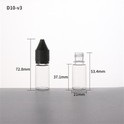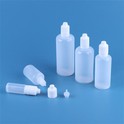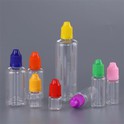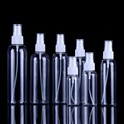Analysis: lessons from more than 100 years of return culture in Denmark shows us why giving waste a value could work for Ireland
It's a Wednesday morning in August and the opening of a new bottle deposit station is causing long queues in a neighbourhood outside the city of Aarhus in Denmark. Locals have been storing their bottles and cans for months, waiting for this exact moment since the station closed down for refurbishment. Soon, queues outside deposit stations or reverse vending machines (RVM) could become commonplace in Ireland, too.
A new deposit return scheme (DRS) is set to be introduced here in February 2024. When you buy a drink in a PET plastic bottle or in an aluminium or steel can featuring the return sign, you will be charged a small deposit fee in addition to the price of the drink: a deposit of 15c for containers from 150ml to 500ml and a deposit of 25c for containers over 500mls up to 3 litres. The deposit can then be redeemed by returning your container to any retail outlet, either in an RVM or over the counter. The idea is that the deposit will act as an incentive for people to recycle more and the system will build a circular economy. A similar system is due to be introduced across Northern Ireland, England, Wales and Scotland in 2025.
Danes have been steadfastly returning their drinks packaging for decades now, earning them a world record in 2021 and they have one of the highest return rates for plastic bottles in Europe at 96%. So how does the system work and what can we learn from the pioneering scheme?
From RTÉ News, details of Ireland's Deposit Return Scheme
The high return rate is down to a long history of the "returkultur" — return culture, says Hanne Svenningsen, head of Environment and Climate with Dansk Retursystem, the non-profit that operates the Danish system. Danes are all brought up in the culture of returning their drinks containers, and while "the deposit amount is important to the consumer, what is more important, our analysis shows, is the good feeling regarding this returning, for the benefit of climate and environment."
A brief history of 'pant’ in Denmark
Danes became acquainted with the idea of ‘flaskepant’ — a bottle deposit — back in the late 1800s when some dairies introduced it on their glass milk bottles. By 1922, the first ‘pantsystem’ — deposit system — was introduced by breweries for beer bottles. The system expanded throughout the decades to include both beer and soft drinks.
Plastic bottles arrived in the early 1990s and Dansk Retursystem was established in 2000 ahead of the arrival of aluminium cans on the Danish market, to comply with EU regulations. The system has since grown to include alcoholic soft drinks, energy drinks, mineral waters, juices and other ready-to-drink products. Dansk Retursystem is owned alongside a number of Danish breweries.






